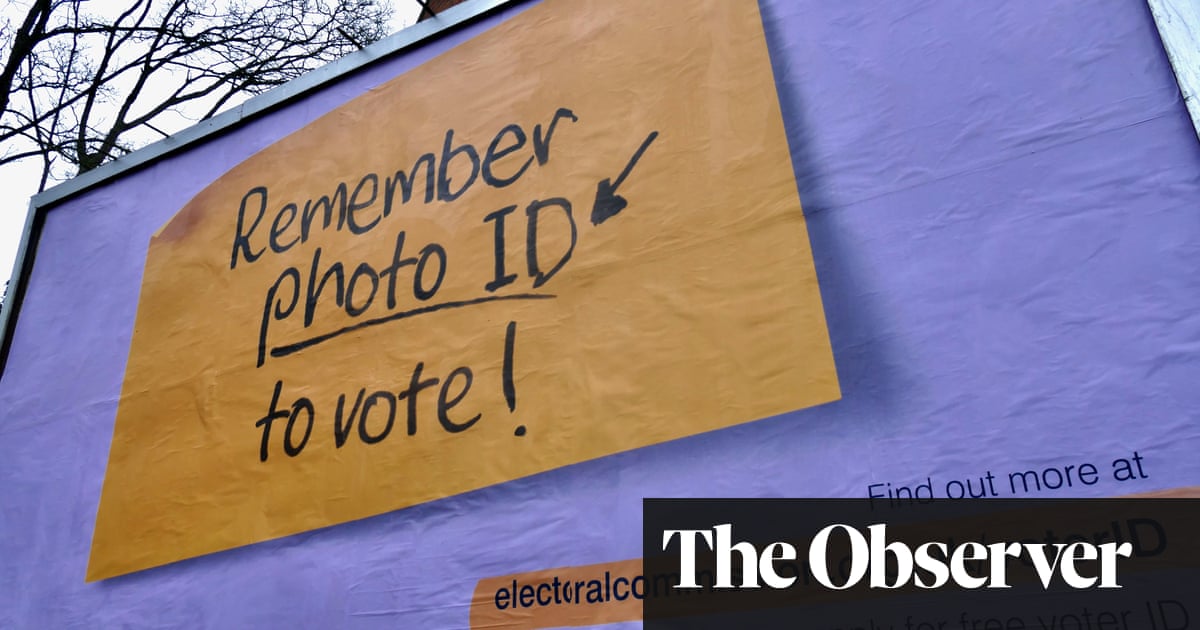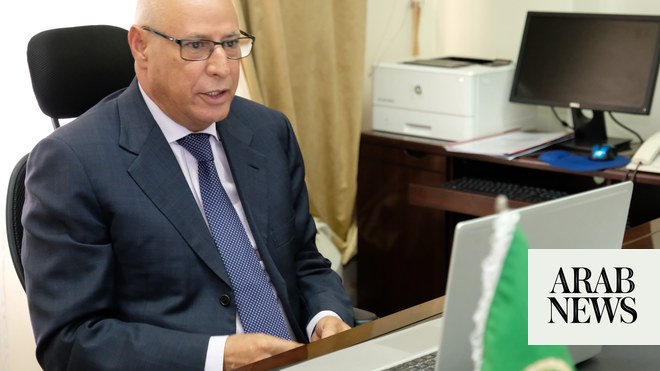
Plans to force voters to present photo ID at polling stations for the first time in May risk damaging access to democracy and must be delayed, senior local government figures have warned ministers.
Amid concerns about voters being turned away and polling station workers being confronted, the body representing councils told the Observer there was simply not enough time to deal with all the risks that will be created by the new system.
There will also be an attempt to torpedo the plan when it is voted on in parliament this week. Concerns over the plan include that vulnerable voters could be disenfranchised, that staff will not be properly trained and that many voters will be unaware of the changes. ID checks may also mean new venues will need to be found.
In a major intervention over May’s local elections, James Jamieson, chairman of the Local Government Association and a Tory councillor, said the measures should be delayed. “It is a fundamental part of the democratic process that elections can run smoothly and effectively, where every citizen is able to exercise their right to vote,” he said.
“While we accept that voter ID has now been legislated for, electoral administrators and returning officers should be given the appropriate time, resources, clarity and detailed guidance to implement any changes to the electoral process… without risking access to the vote. We are concerned that there is insufficient time to do this ahead of the May 2023 elections, and for this reason are calling for the introduction of voter ID requirements to be delayed.”
Some opponents have argued that the measures are disproportionate to the threat of voter impersonation and accuse ministers of attempting to suppress the vote. There was only one conviction for voter impersonation at the 2017 election.
Jamieson said that ministers should respect a long-standing principle that such changes should not be imposed within six months of a set of elections. May’s elections in England take place in councils across the country, including Liverpool, Leeds, Manchester and Newcastle.
Ministers have said the change to photo ID has been introduced in order to protect the integrity of elections, but the short notice has alarmed the officials tasked with organising them. Jamieson said he had concerns about the time left to review polling stations and prepare the new IT systems required.
There have also been problems in recruiting polling station staff and volunteers, given fears over the potential for conflict that the new photo ID measures could create. Peter Stanyon, chief executive of Association of Electoral Administrators, raised the issue of staff safety. “Those [with] elections in May are not totally sure what it is they need to deliver,” he said. “They’ll need to know what degree of training they will need to give to both core staff and volunteers. This is a skilled job now – they will need to actually say ‘no’ to people turning up without the right form of ID or no ID at all.
It’s not about giving them a higher fee. It’s about the risks.”
Meanwhile, the Liberal Democrats will attempt to kill off the plans in the House of Lords this week using a “fatal motion”, a rarely used parliamentary device. A number of council leaders have also written to levelling up secretary Michael Gove with concerns.
“We would urge government to delay the introduction of the voter ID regulations until after May 2023 to allow time for the smooth introduction of the online Voter Authority Certificate system and a public awareness campaign which gives electors time to fully understand how the new rules will affect them,” they wrote. “Not doing so could lead to a situation where some results are legally challenged which would be bad for democracy and could undermine the confidence that the public have in the electoral process.”
Baroness Pinnock, the peer fighting the measure in the Lords, said: “We are opposing these plans to disenfranchise thousands upon thousands of people from every background … in the strongest possible way, by forcing a vote in both Houses of Parliament. The government must drop this devious plan.”
A government spokesperson said: “We cannot be complacent when it comes to ensuring our democracy remains secure. Everyone eligible to vote will have the opportunity to do so, and 98% of electors already have an accepted form of identification. Photo identification has been used in Northern Ireland elections since 2003 and we’re working closely with the sector to support the rollout and funding of the necessary equipment and staffing.”












